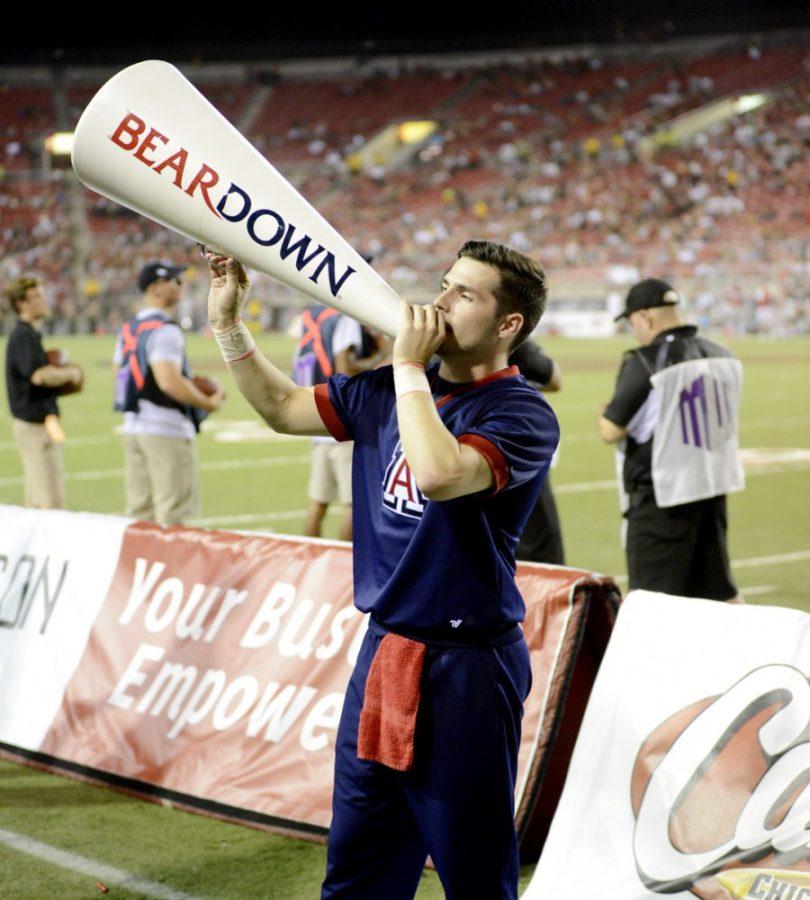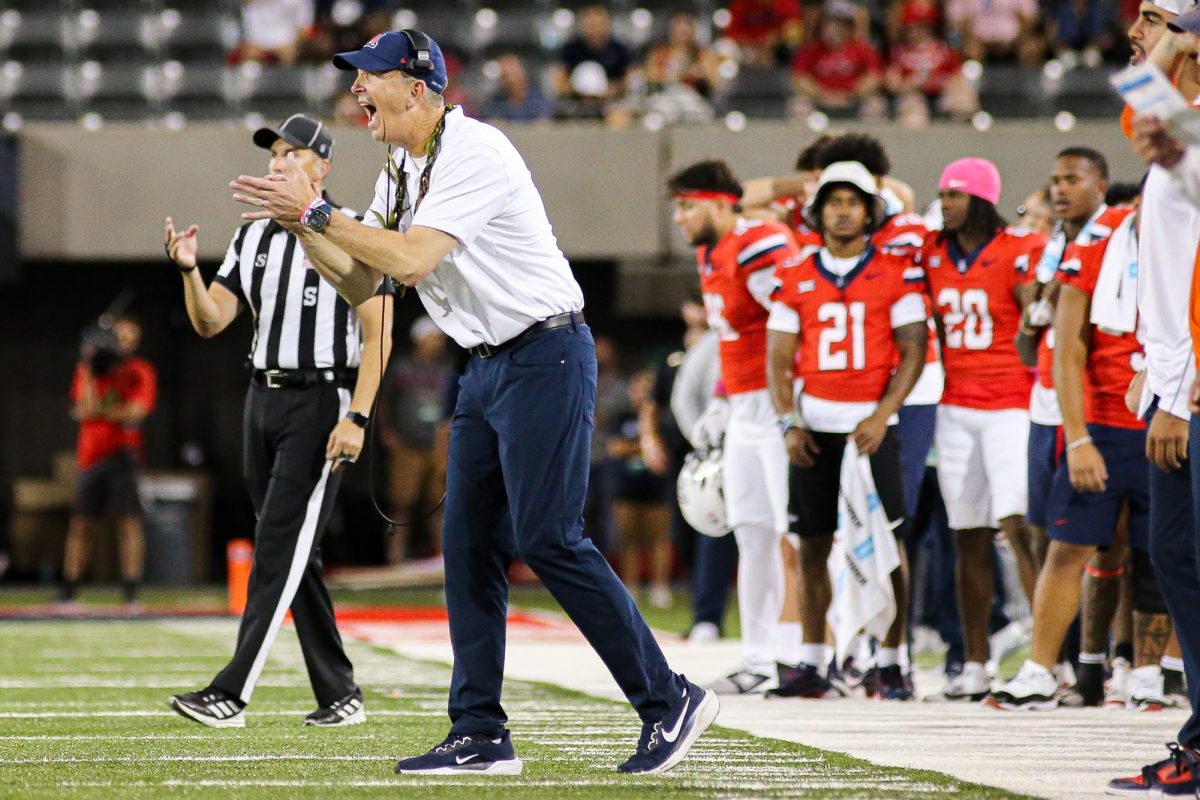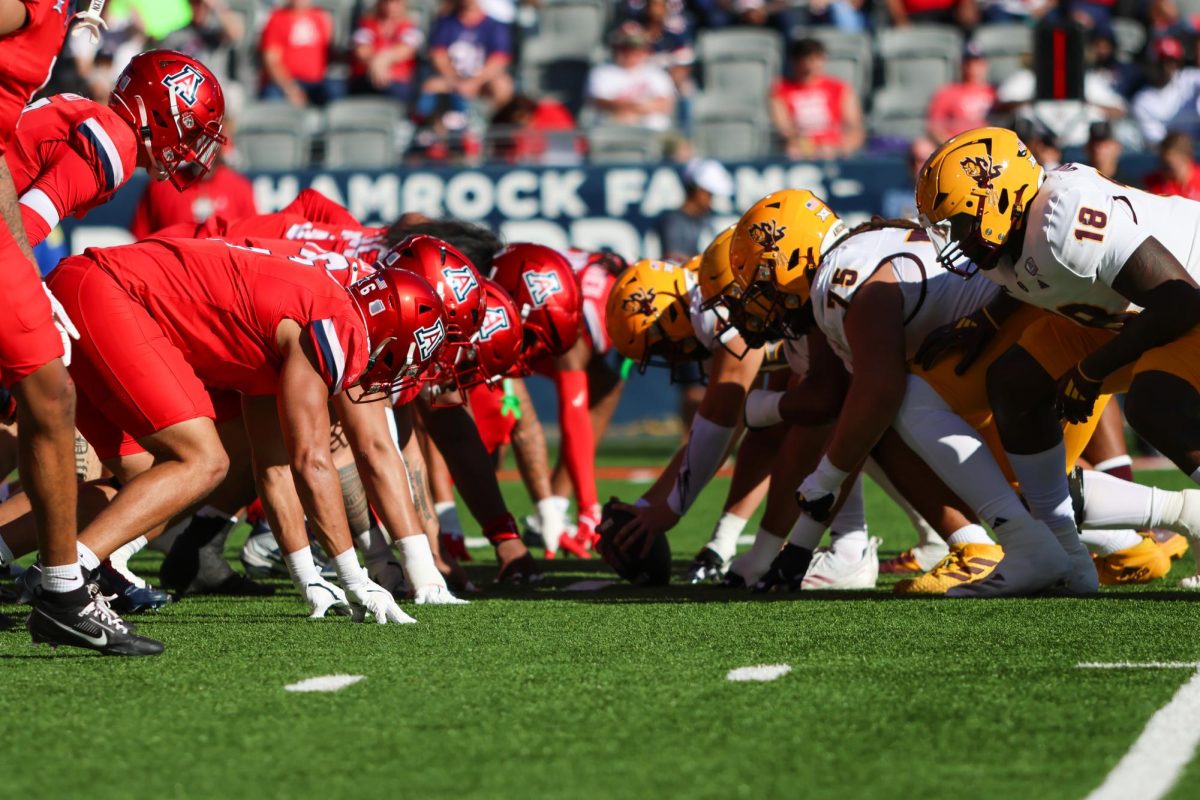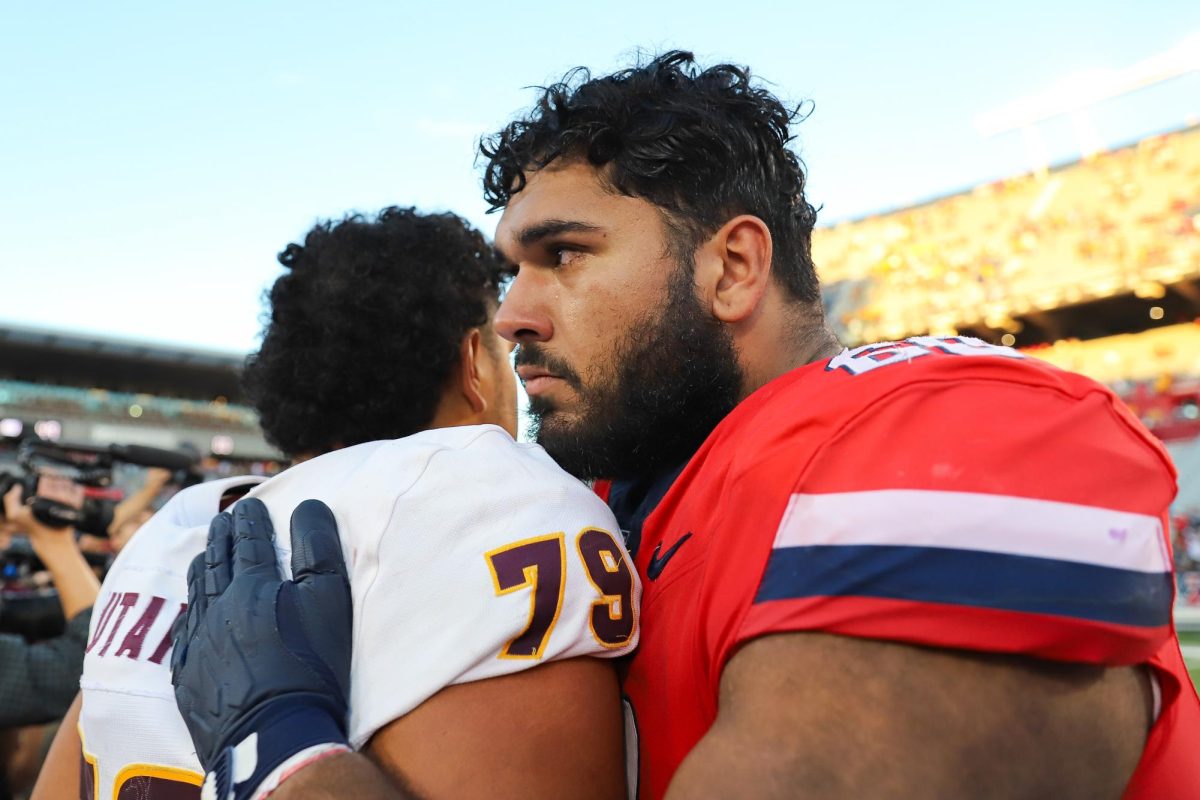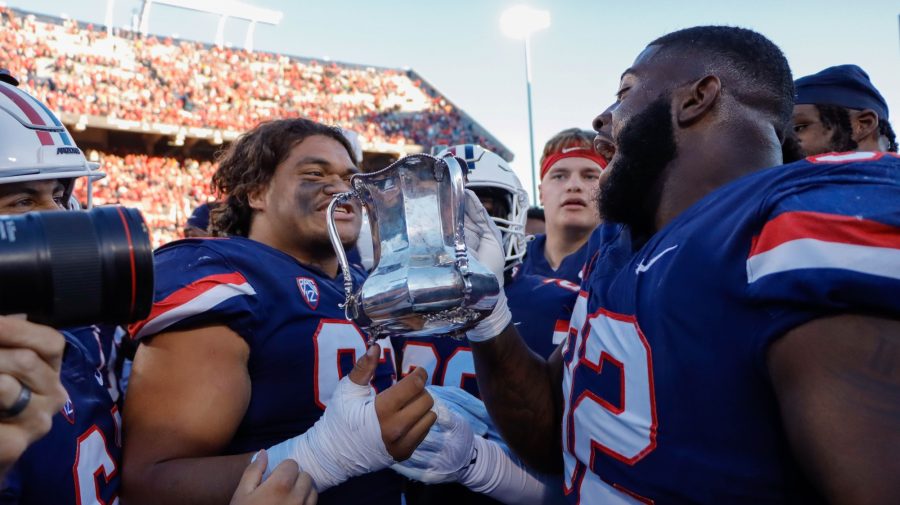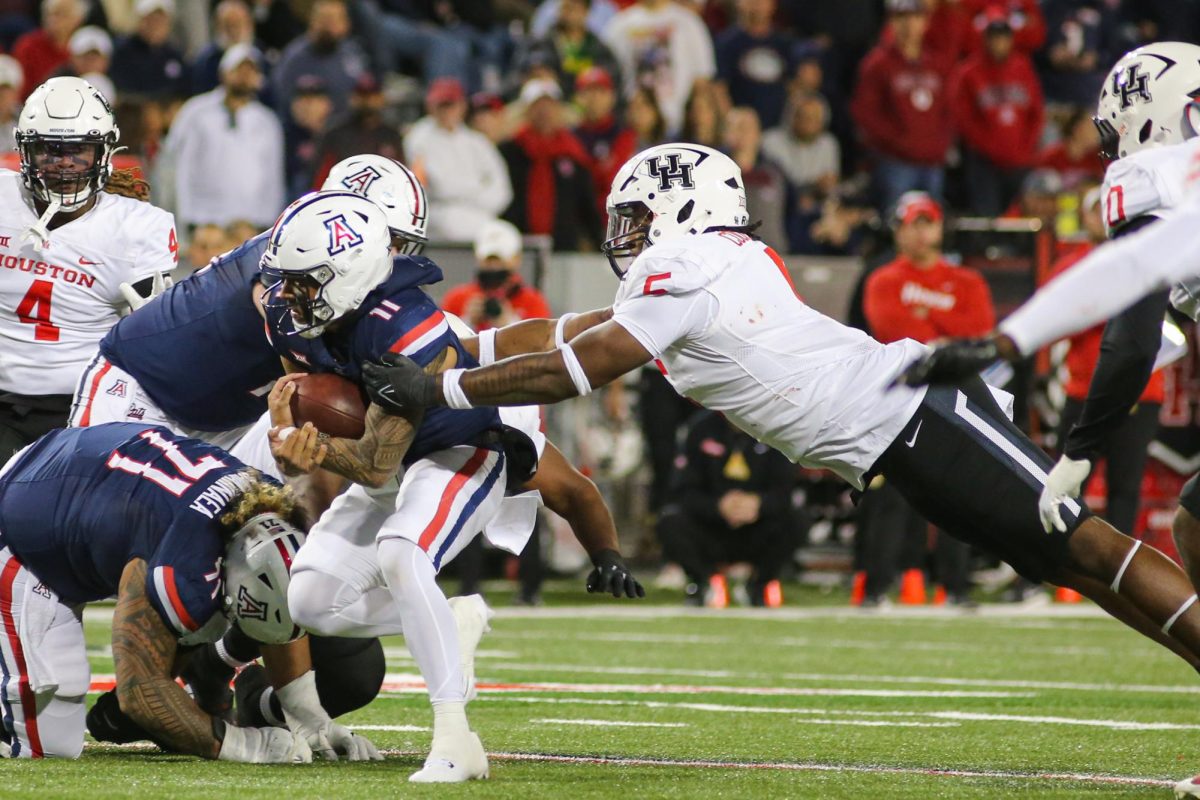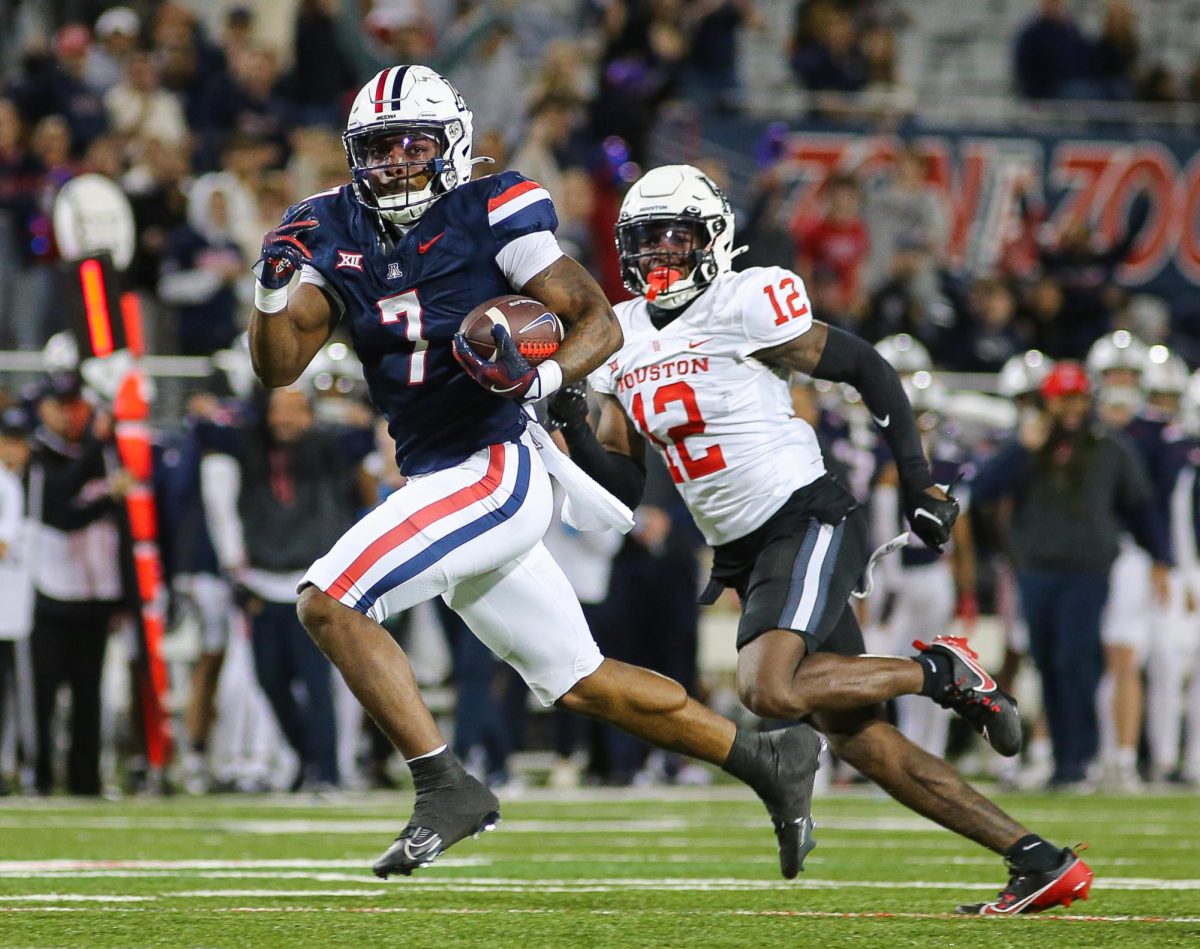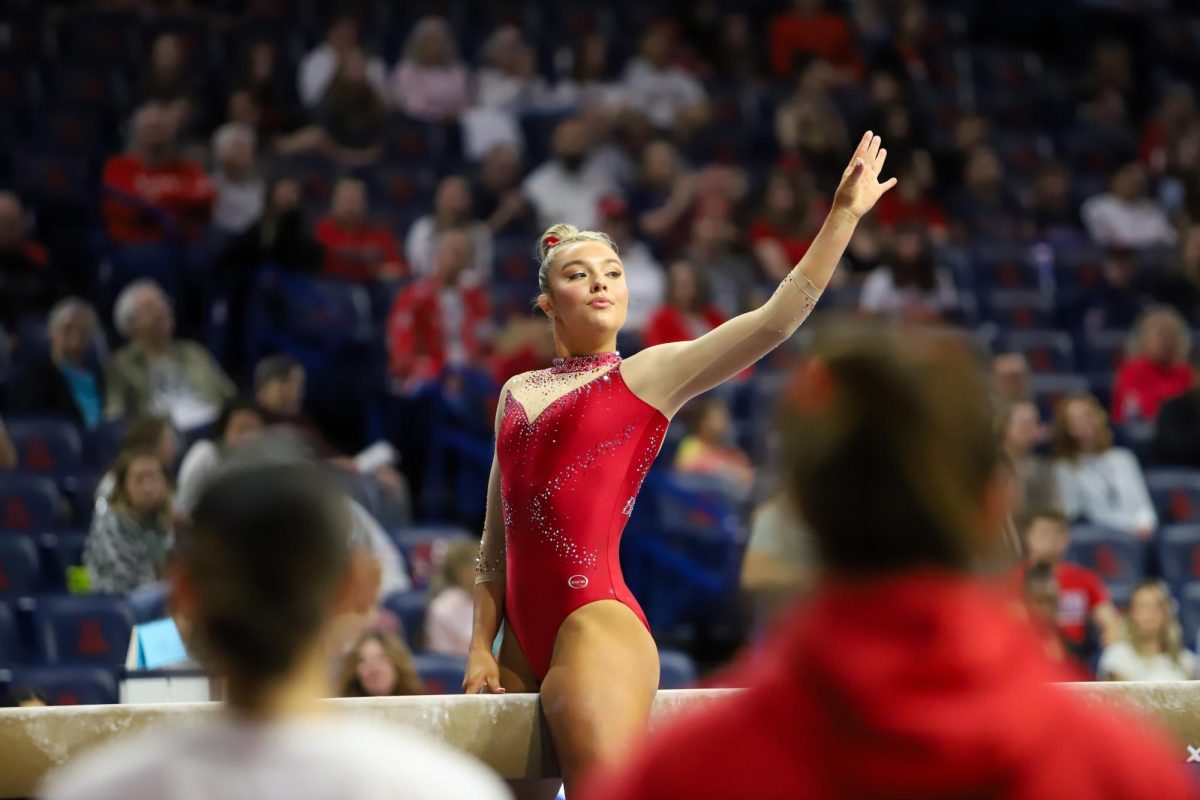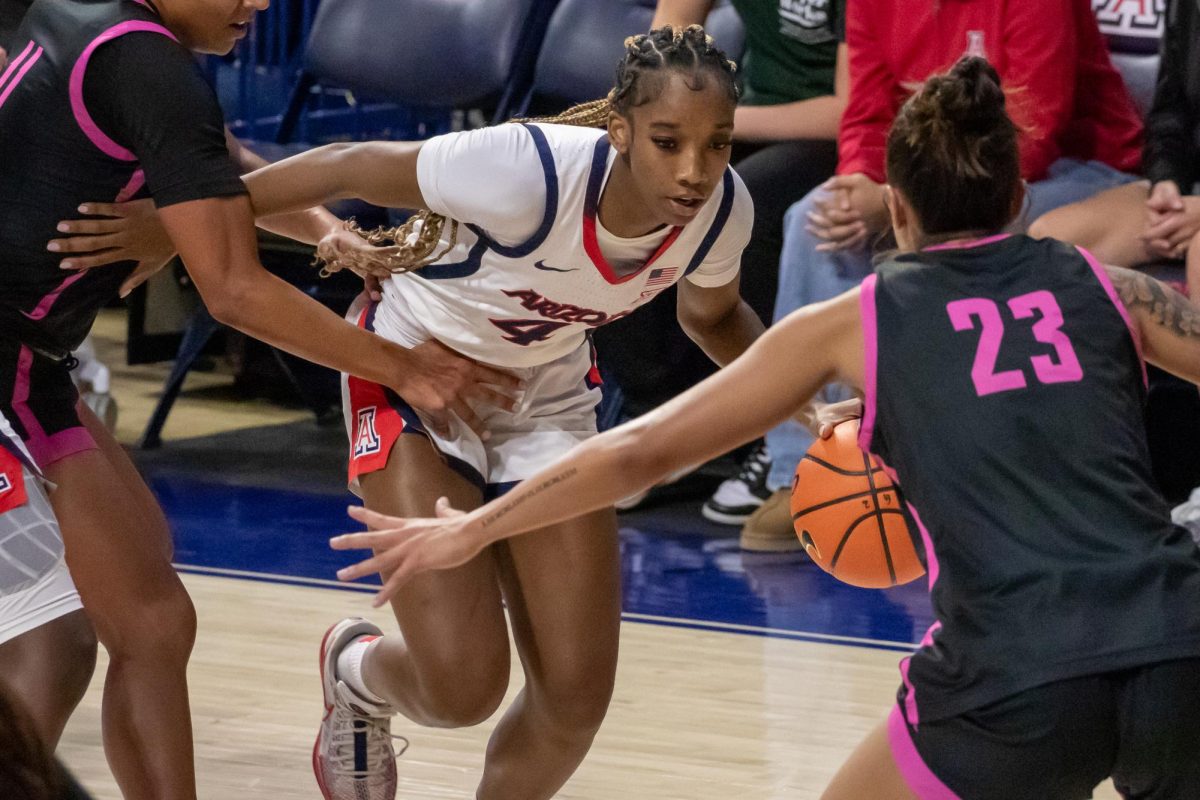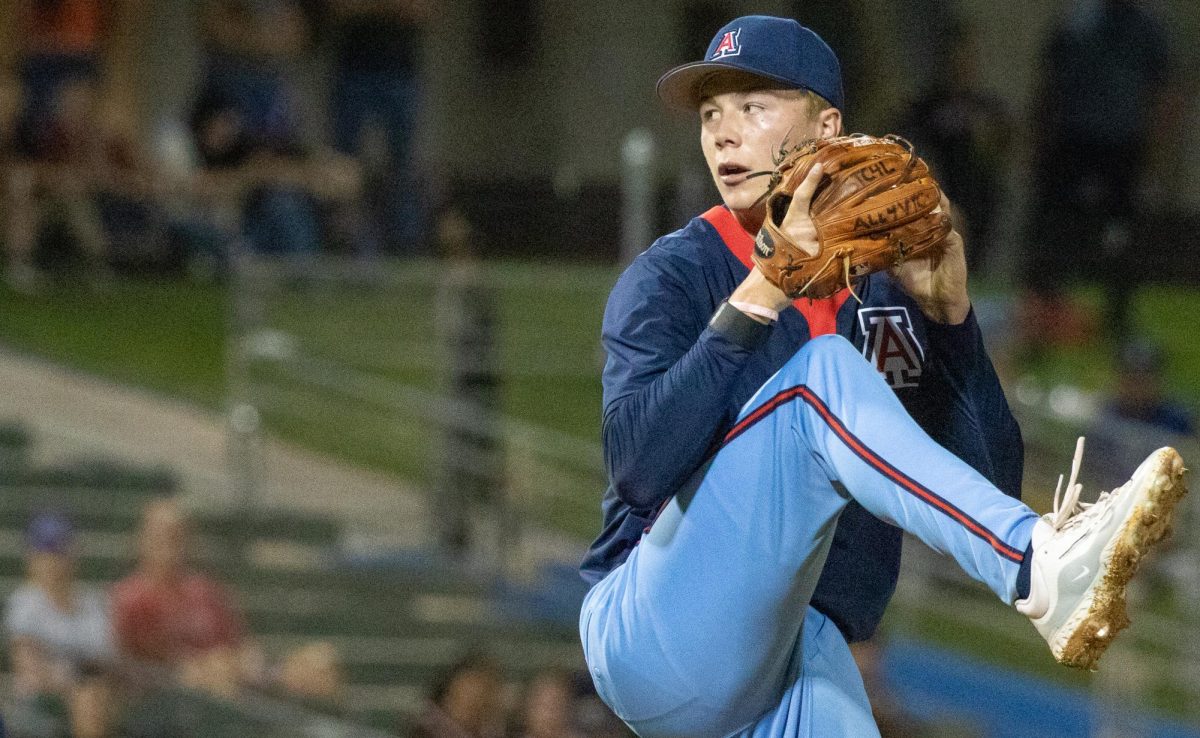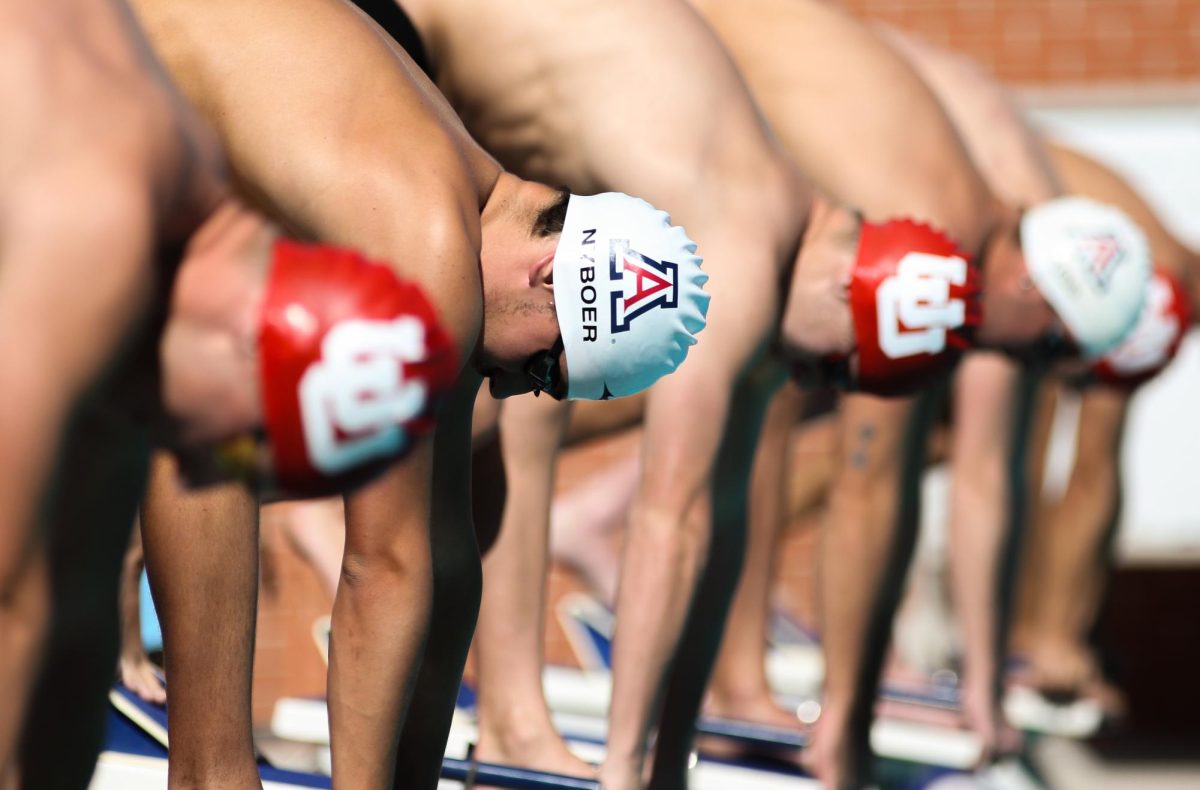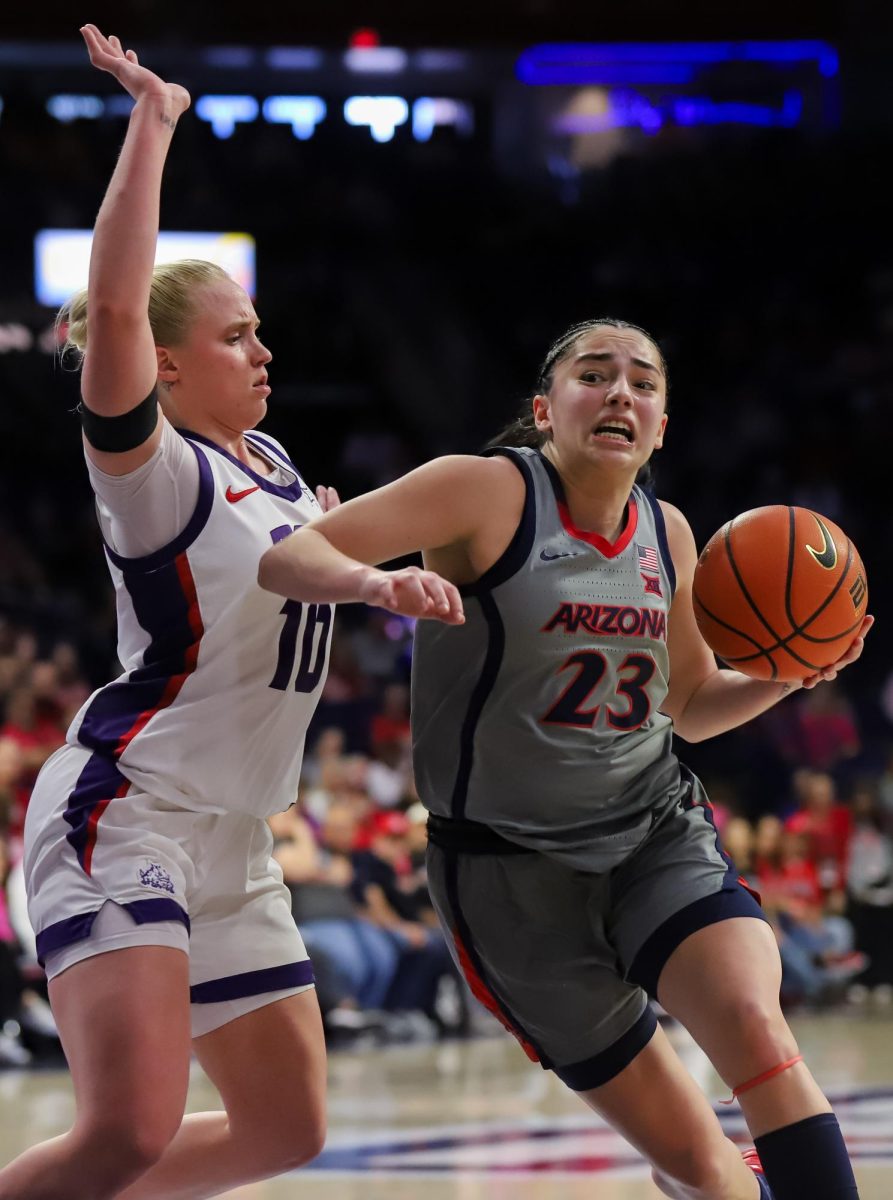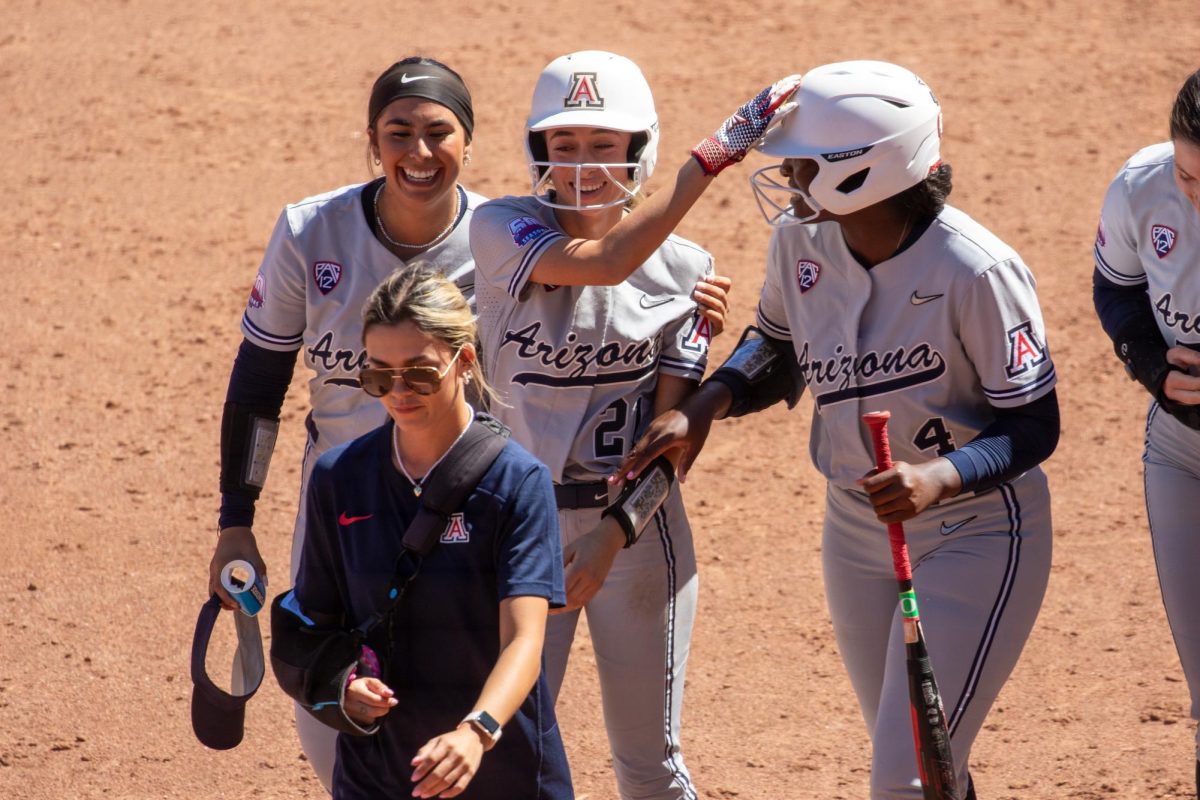At 6 a.m. on a Wednesday morning, most college guys are sleeping. Or maybe they’re just rolling out of bed.
But at 6 a.m. at McKale Center, there’s a group of college guys who are wide awake, tossing and catching girls.
These are the Arizona male cheerleaders.
There’s a stigma that cheerleading isn’t a sport, that a male cheerleader isn’t masculine, that you don’t have to be athletic to cheer. But the truth is, a lot of physical training goes into being a cheerleader.
James Hosobe, a junior in his second year on the squad, used to play football in high school. Hosobe came to terms with the fact that he wasn’t big enough to play football in college, but found his place in cheerleading.
Cheerleading, according to Hosobe, is a very physically demanding sport. Weight training workouts for the guys on the squad consist of fast twitch muscle techniques and other exercises to condition their core and legs.
“Football is about getting big, big, big,” Hosobe said. “Cheer is about abs, abs, abs.”
Hosobe said the most important part of cheer training is technique. Having good technique is crucial — after all, a woman’s life is in his hands.
“You can weight lift a million pounds, but if you don’t have the technique to follow the jump, it’s impossible,” Hosobe said.
Besides having weight training days, the cheer squad has early morning practices three times a week. On top of that, it has appearances at games, which this time of year could include women’s volleyball, women’s basketball, men’s basketball and a football game all in one week.
Cheerleaders can easily spend 20 hours a week on cheer alone. On top of that, they juggle schoolwork, jobs and internships.
Hosobe, a pre-med student who is majoring in East Asian studies with an emphasis in Japanese, manages 17 units along with cheer. Last year, Hosobe was taking 19 units, including two labs, while cheerleading.
How does he survive?
“A schedule book and lots of coffee,” Hosobe said.
Psychology senior Courtney Broome manages not only cheering and being a student, but having two jobs as well.
“It’s very hard,” Broome said. “But it teaches you really good time management.”
In his fourth year on the squad, Broome said that being a cheerleader, although time-consuming, has its perks.
Broome traveled to San Antonio, Texas, in 2010 for the Alamo Bowl. He also traveled to Hawaii for Christmas last year to cheer in the Diamond Head Classic men’s basketball tournament.
Broome never expected that he would get an all-expenses paid trip to Hawaii in college, he said.
But even with all of the traveling he has been able to do as a result of cheer, he said the best part of being a part of the squad is simply cheering at all of the football games.
Broome is responsible for running with the “A” flag, a job he used to hate.
“I usually hate running,” Broome said. “But then when you run, the crowd cheers. So now I love it.”
Running the flag is a responsibility that is indescribable, he added.
“I tell the guys each year, I can’t explain what you’re going to feel, but it’s going to be the best feeling in the world,” Broome said.
For junior T.J. Mitchell, who is in his second year on the squad, the best part of cheerleading is being able to be on the sidelines of football games and really feel like a part of the action.
“When you’re down there on the field, and a player runs out of bounds, and you’re able to slap their helmet before they go back in is a pretty good feeling,” said Mitchell, who is studying philosophy, politics, econ and law, as well as religious studies.
Sometimes, though, it’s difficult to maintain that upbeat attitude, especially in a game like Saturday’s, against Washington State.
But that’s when the squad members lean on each other the most.
“We kind of have to encourage each other to stay positive,” Mitchell said. “That sounds silly, ‘cause we’re cheerleaders and whatnot, but by joking with each other and encouraging each other when we hit stunts, that gets us up a bit.”
The male cheerleaders lift the women up not only literally, but figuratively as well.
Math senior Lexi Tatem, a fourth year on the squad, said that the men are the workhorses of the team.
Tatem said the women on the squad have a lot of trust in the guys — mostly because the guys are holding them in the air, sometimes only with one hand — but also because they’re like a family.
“All the guys are like my brothers,” Tatem said. “I’m way closer to any of them than any guy in my life. I mean, they see me when it’s 6 a.m. and I just rolled out of bed. We’re like a big family.”
—Follow Scarlett McCourt @scarlettnoelani



